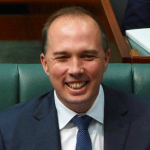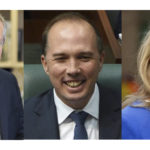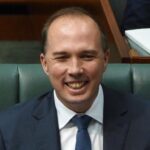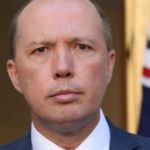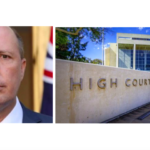Peter Dutton Accused of Pork Barrelling
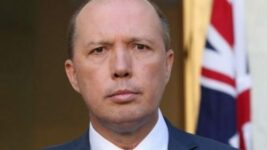
Fresh allegations of Federal Government pork barrelling are fuelling calls for better accountability mechanisms and greater transparency in the way taxpayer money is allocated.
Home Affairs Minister Peter Dutton is the latest in the headlines, amid allegations he handpicked projects for funding in the lead-up to the 2019 Federal Election, overwhelmingly favouring electorates that would increase the prospects of a Coalition victory without due regard to merit.
Under scrutiny
The opposition has now asked the Auditor-General to examine the Safer Communities Fund, after documents released under The Freedom of Information Act show Dutton diverted almost half of the total funding pool of funding away from recommended projects to his own personally chosen ones.
Departmental documents reveal that Mr Dutton was given a list of the 70 projects potentially eligible for $17.5 million of taxpayer funding, along with a second list which ranked a further 211 projects that had passed the selection criteria. It was recommended that he pick 15 as reserve project should money become available.
Pork barrelling
Mr Dutton chose 53 projects from this list – including the bottom-ranked one – improvements to a scout hall in Umina on the NSW Central Coast. Handwritten adjustments for 19 of the recommended projects and six of the reserve projects freed up the money necessary to cover them all, including two from his own electorate.
At the time, his department warned “should you decide to make funding decisions that do not reflect the order of merit, you may be criticised either in the media, or by the Australian National Audit Office”.
That is sound advice, but advice that Mr Dutton seems to have chosen to ignore, making decisions instead that favoured coalition seats, and also allocated funds to ‘targeted’ marginal electorates which could have potentially affected the election outcome.
It is reported that in one case, the Home Affairs Minister fast-tracked a one off, $880,000 grant to a retain association just eight days after it made a $1500 donation to the Queenslad Liberal National Party at an event attended by Mr Dutton.
Lack of transparency
There are growing community concerns about how grant funds are allocated, and the distinct lack of transparency around how these decisions are made.
‘Pork barrelling’ is the slang term given to the practice of government’s utilising funds for projects designed to please voters or legislators and win votes. It is not illegal, but it’s not an entirely ethical practice, and it is something many voters don’t necessarily agree with.
Community Funds, as their name suggests, are set up to benefit the community, not to generate good PR in the lead up to an election and yet the Federal Government and the New South Wales Government appear to consider these pots of taxpayer funds as a ‘slush fund’ at their disposal.
Pork barreling is rife
It’s the third time pork barrelling has hit the headlines in less than twelve months, along with allegations of corruption and misuse of public funds, beginning with the Federal Government’s‘ ‘Sports Rort Scandal’ this time last year which broke after a senate inquiry heard nearly half – 43% of projects which were awarded grants as part of the Community Sport Infrastructure Program in the lead up to the 2019 federal election, were not eligible for the money.
In many cases, the projects were found to have fallen short of the selection criteria – and funds were allocated to marginal electorates, the inference being that this was done to enhance the prospects of Coalition MPs in those electorates keeping their seats.
Sports Rort
Senator Bridget McKenzie, who was the sports minister at the time, stepped down from Cabinet and her role as deputy leader of the Nationals after it was discovered she had failed to disclose her membership to a gun club which received almost $36,000 through the scheme.
Ms McKenzie fronted the ongoing senate inquiry into a number of community grant programmes this week and maintains that she held full responsibility for the grant programmes failings. However, she has long been suspected in the eyes of the general public as simply the ‘scapegoat’ as more senior politicians, including Prime Minister Scott Morrison, distanced themselves from the controversy.
Allegations of corruption in NSW
More recently, the New South Wales Premier’s office found itself guilty of illegally destroying government records after a Public Accountability Committee enquiry heard that senior staff members of the team shredded documents relating the allocation of $141 million in Stronger Communities Fund grants, many of which just happened to be allocated to councils in Coalition-held seats in the lead up to the last election.
Further inquiries found that the document shredding amounted to a criminal offence, although no one will be prosecuted.
Only last month it was revealed that Ms Berejiklian personally approved a $20 million grant in Wagga Wagga without going through the required approval process. Moreover, the grant was announced during the Wagga Wagga by-election that was sparked by the resignation of Daryl Maguire over corruption claims; Mr Maguire is, of course, the person with which Ms Berejiklian had a ‘secret relationship’ during that time. The inquiry is continuing.
Community benefit or political agenda?
The simple fact is that most community projects are ‘deserving’ of the money they seek via Local, State and Federal grants, and in an ideal world, they’d all get the funds they desperately need.
Instead these groups and causes dutifully apply only for it to be revealed that apparently, unless they meet a hidden ‘political agenda,’ it doesn’t matter how good their particular cause is, how aptly it fits within funding criteria, or how much it might actually benefit its community.
There is a massive problem with accountability here, although it’s unlikely that the status quo will change anytime soon.
Australian watchdogs, such as the National Audit Office (ANAO) and the Independent Commission against Corruption (ICAC) lack the funding, manpower and – most importantly – the clout – to have any real impact.
While they can, and do, undertake thorough investigations which then provide credible information to the general public, these organisations are essentially powerless when it comes to ensuring that those who have engaged in misconduct are held to account.
The best we can hope for is that as a result of numerous recent high-profile inquiries, funding guidelines will tighten and ensure a more open, independent and robust process for allocating tax payer funds so that the public can maintain faith that funding decisions are made on merit, and with integrity.


